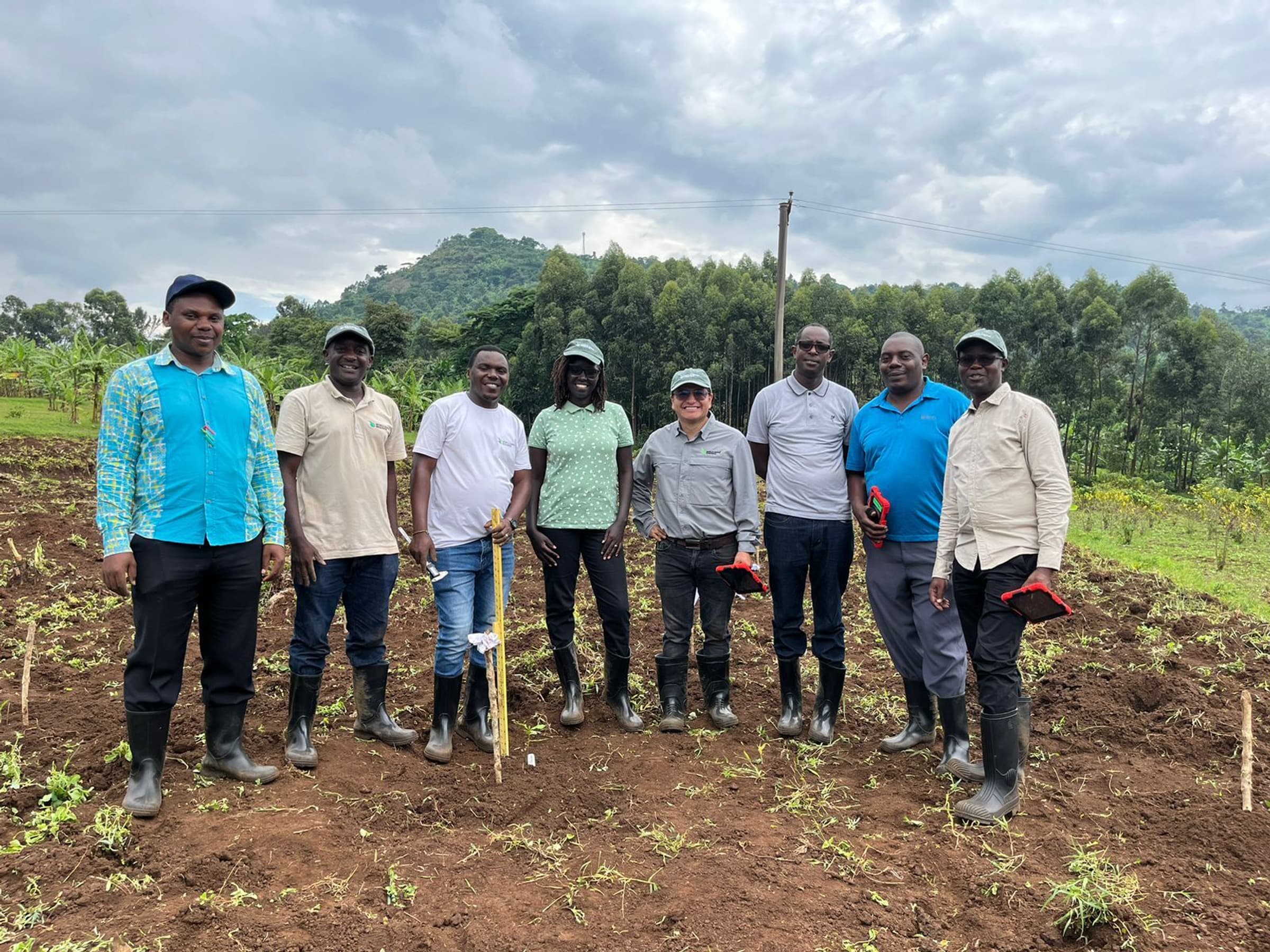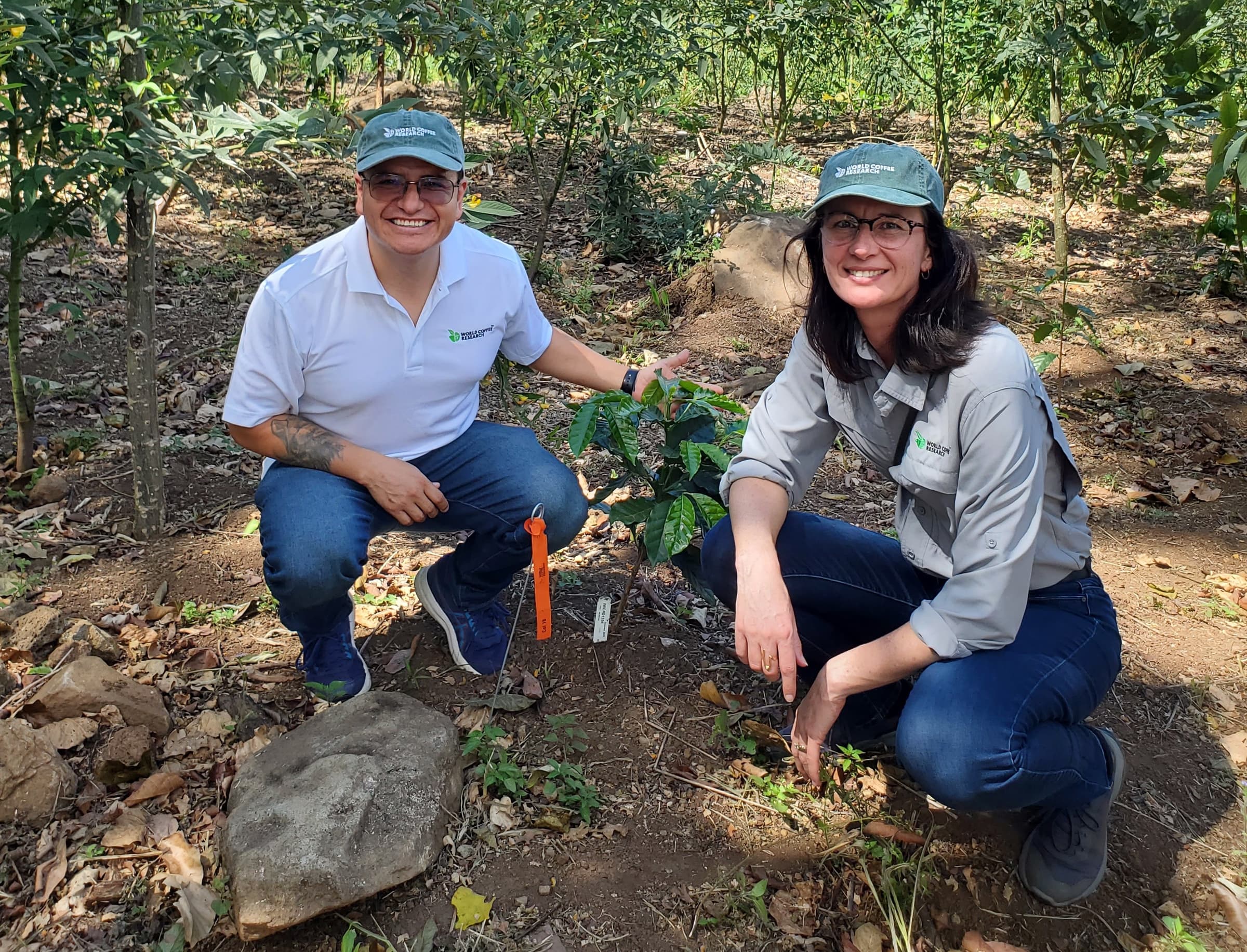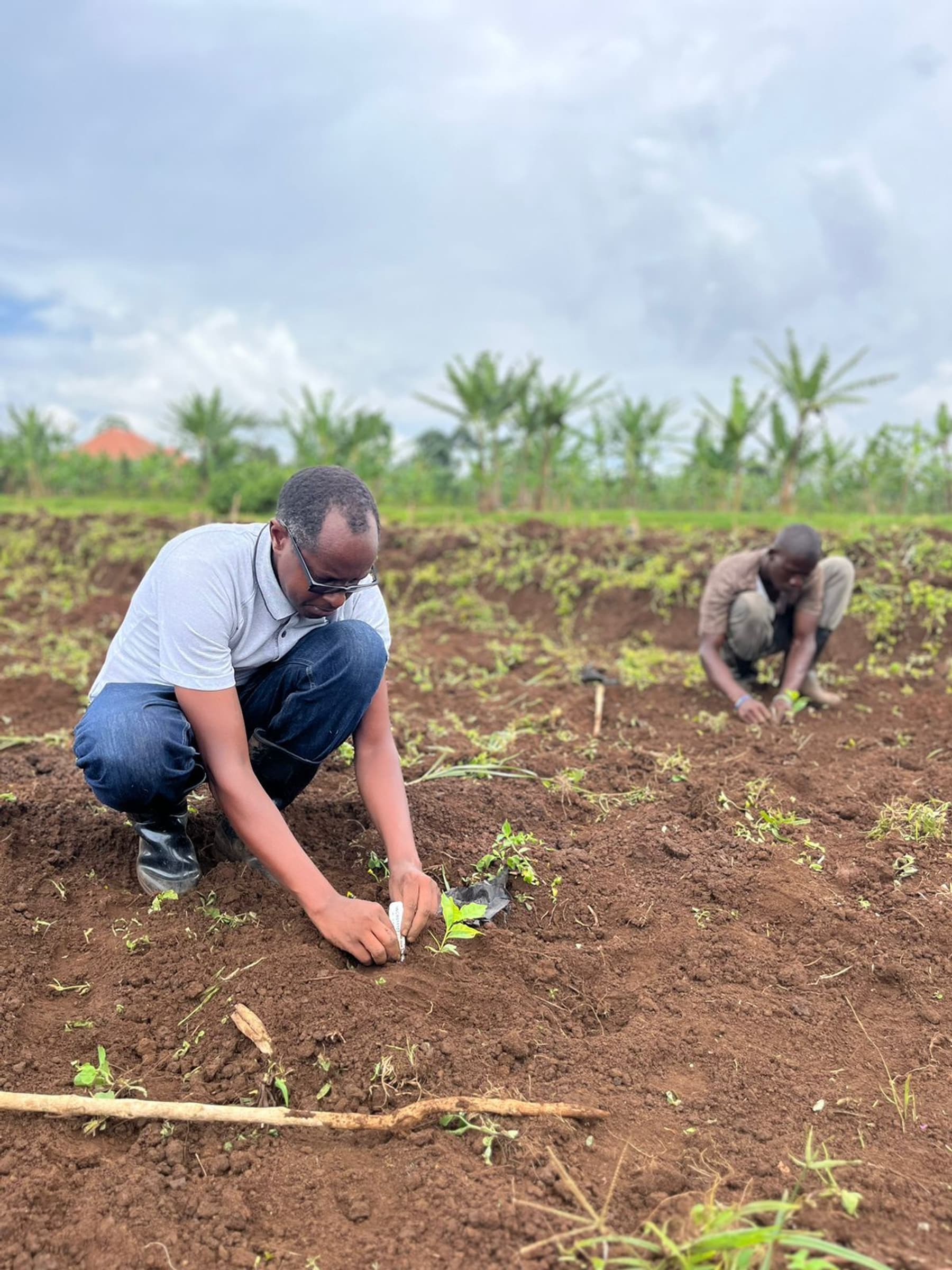First seedlings from the Innovea network transplanted for field evaluation
Global, collaborative breeding network’s performance evaluation phase begins

East African Innovea Breeding Network scientists pose for a photo during the transplantation of seedlings in Uganda. From L to R: Godfrey Ssremba (NARO), Robert Kawuki (WCR), Jean Baptiste Kayigamba (WCR), Jane Cheserek (KALRO), Santos Barrera (WCR), Simon Martin Mvuyekure (WCR/RAB), Vincent Kyaligonza (NaCORI), James Gimase (KALRO).
Research stations and national coffee institutes across the world have started to transplant the first seedlings from the Innovea Global Arabica Breeding Network into fields for evaluation. Once these seedlings, which grew from germinating seeds generated via crosses made by World Coffee Research (WCR) breeders in 2022 between 16 parent varieties, are transplanted by all national partners, they will together comprise a total of 5,000 new, unique trees across 11 sites.
These young plants represent a key phase in the establishment of the Innovea network—a global, collaborative effort bringing together 9 partner countries for the largest breeding project in over 50 years—as it sets out to accelerate the rate of genetic improvement and transform the future of coffee. While timelines differ for partners depending on ideal planting season variability, by the end of 2024, 7 out of 9 national network partners will have set up experimental field trial sites to begin evaluating the performance of these crosses.

(From L to R) Santos Barrera, WCR Research Scientist in Plant Breeding and Genomics, and Dr. Tania Humphrey, WCR Director of Research and Development, pose with a transplanted seedling in Costa Rica.
"These plants have certainly come a long way to get to this point. We look forward to observing them in the field and evaluating their performance.”
In September 2023, seedlings at WCR’s breeding factory in El Salvador were planted in the field. Currently, partners in Costa Rica (ICAFE), Rwanda (RAB), Uganda (NaCORI), and Kenya (KALRO), are selecting seedlings from their respective nurseries for planting and transplanting these small trees into the field to establish rigorous experimental trial sites. These five national partners will complete the transplantation process by the end of spring 2024.
Comparatively, Partners in Mexico (Chapingo Autonomous University), Hawaii, United States (USDA), and Peru (INIA) are currently conducting seed germination and genotyping processes, including a hybridity check using genetic markers for quality assurance. Both partners are on track to complete these processes by the end of 2024, and at that point, will begin transplanting their own seedlings. Further, national partners in Indonesia (ICCRI) and India (CCRI) are on track to receive their seed by the spring and summer of 2024 respectively, the latter of which will receive seedling germinated invitro. These partners will follow the same processes as their counterparts.

Dr. Simon Martin Mvuyekure, WCR Breeding and Trials Advisor at the Rwanda Agricultural Board (RAB), instructs on proper transplantation methods for Innovea seedlings in Uganda.
WCR is working with partners to begin collecting global performance data on the thousands of individual trees installed at these sites. All sites will follow protocol set forth by WCR to ensure standardization throughout the evaluation process. Field performance and genotypic data from across the global network will be combined to make new cycles of crosses in six years (and every 3 years thereafter) using the network’s genomic selection strategy. This strategy is designed to ensure that each set of new crosses is better than the one that came before—providing participating countries with a continual supply of improved breeding materials and forging a path for the success of coffee agriculture for today and future generations.
“Seeing our partners transplant the Innovea seedlings into fields across the world is very exciting,” said WCR Director of Research & Development, Dr. Tania Humphrey, “This milestone is a testament to the unique coordinated design of the network and its ability to enable global scientific collaboration. These plants, which came from crosses WCR made in 2022, have certainly come a long way to get to this point. We look forward to observing them in the field and evaluating their performance.”